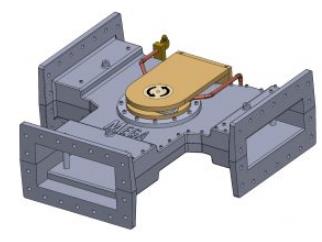How Do Waveguide Gaskets Ensure Seal Integrity?
Critical Role of Waveguide Gaskets in RF Systems

Waveguide gaskets play a pivotal role in maintaining the integrity and performance of waveguide systems. These specialized components are designed to prevent air and moisture ingress that can degrade signal quality and lead to system failure. Positioned between flanges in waveguide assemblies, they form a critical barrier that protects the internal components from external environmental factors.
Ensuring Optimal Performance Through Sealing
Air and Moisture Exclusion
The primary function of waveguide gaskets is to seal the joint between waveguide sections, preventing air and moisture from entering the system. Moisture is particularly detrimental as it can cause corrosion and dielectric losses, significantly impairing the waveguide's ability to transmit microwave signals effectively. Waveguide gaskets are designed to offer an air-tight seal, which is crucial in environments where humidity and condensation can affect system reliability.
Maintaining Pressure Differentials
In high-altitude applications, such as in aircraft and satellite systems, waveguide gaskets ensure that the pressure differential between the inside and the outside of the waveguide is maintained. This prevents the waveguide from experiencing pressure-induced deformation, which can alter the waveguide's dimensions and negatively impact signal transmission.
Material Selection for Maximum Reliability
Choosing the Right Materials
The effectiveness of a waveguide gasket largely depends on the materials used in its construction. Materials such as silicone, fluorosilicone, and ethylene propylene diene monomer (EPDM) are commonly used due to their excellent sealing properties and resistance to temperature variations and chemical exposure. These materials are selected for their ability to maintain elasticity and mechanical strength over a wide range of temperatures, which is essential for ensuring long-term seal integrity.
Compatibility with Waveguide Metals
Compatibility with the waveguide's metal is another critical consideration. Waveguide gaskets must not react chemically with the waveguide material, typically aluminum or copper, to prevent galvanic corrosion. This compatibility ensures that the gasket will not degrade over time, which could compromise the seal and allow contaminants to enter the waveguide.
Advanced Manufacturing Techniques
Precision Engineering
Waveguide gaskets are manufactured using advanced techniques that ensure precise dimensions and fit. Techniques such as compression molding and injection molding are employed to produce gaskets that meet exact specifications for thickness, hardness, and resilience. This precision is crucial for achieving a uniform seal along the entire flange interface, which is necessary to prevent any leakage points.
Applications Across Various Industries
Telecommunications and Radar Systems
In telecommunications and radar systems, where signal integrity is paramount, waveguide gaskets provide the necessary protection against environmental variables that could disrupt signal flow. Their use ensures that these systems deliver high performance consistently, even in adverse weather conditions.
Aerospace and Defense
The aerospace and defense industries rely heavily on waveguide gaskets to protect communication systems from the extreme conditions encountered in outer space and high-altitude environments. The reliability of these gaskets directly impacts the safety and effectiveness of aerospace missions.
Conclusion
In summary, waveguide gaskets are essential components that ensure the reliability and efficiency of waveguide systems. Their role in preventing air and moisture ingress, maintaining pressure differentials, and ensuring compatibility with waveguide materials cannot be overstated. With advances in material science and manufacturing technology, waveguide gaskets continue to evolve, offering even greater reliability and performance to meet the demanding requirements of modern microwave and RF systems.